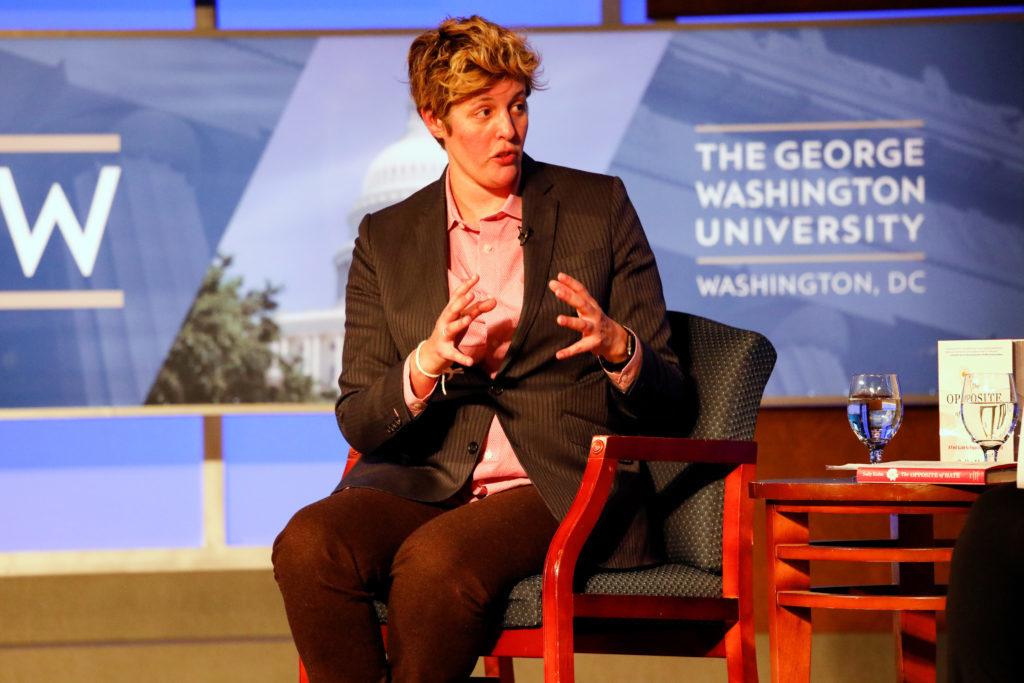CNN political commentator and alumna Sally Kohn discussed her new book, “The Opposite of Hate,” at Jack Morton Auditorium Wednesday.
Kohn’s nonfiction book, released earlier this month, discusses the root of hate around the world. The event, organized by independent bookstore Politics and Prose, focused on takeaways from the book, like the origins of hate, the way hate manifests and methods to reduce hate.
“What I wanted to do is give people insights into the world — into how we hate and who we hate — and insights into themselves,” she said. “To me, it’s the beginning of a conversation.”
Kohn, who graduated from GW in 1998, said the title for her book refers to connections that can form between individuals from different groups that don’t see eye to eye on political issues. The opposite of hate is connection, she said.
She was inspired to write the book after working as a liberal commentator at Fox News, she said. After starting this job, she said she realized she hated her co-workers because of their political views, even though she had thought of herself as someone who stood opposite to hate.
“I expected everyone — on air, off air, people watching at home — I expected them to be totalistically and completely 100 percent hateful monsters,” Kohn said. “And that sounds horrible to say, but that’s what I expected.”
Kohn also talked about hatred manifesting in more extreme forms around the world, like during the Rwandan genocide and the ongoing conflict between Israel and Palestine. Kohn said the Rwandan genocide was one example of hatred causing people to kill others close to them.
“I had heard about how people had, with incredible frightening intimacy, killed their friends and their neighbors,” she said.
But Kohn said Rwanda’s efforts to spread awareness by commemorating their history were commendable and helped the healing process in the country.
“Unlike, for instance, our country – where we often obscure the hateful and violent things in our past, in our history, and don’t talk about them and confront them directly – Rwanda has memorials and sites of the genocide that are still quite visceral,” Kohn said.
Kohn said the most challenging part of the book was confronting her own past as a hateful person. In elementary school, she bullied another student and when writing the book, she tracked down her former classmate to apologize, she said.
“As part of this process for me, I found her. I apologized, she did not forgive me — that’s her choice,” Kohn said. “She said, ‘Look you, the only way to make up for this is to try to do better and try to help others do better, and foster compassion in the world and stop others from doing what you did.'”





